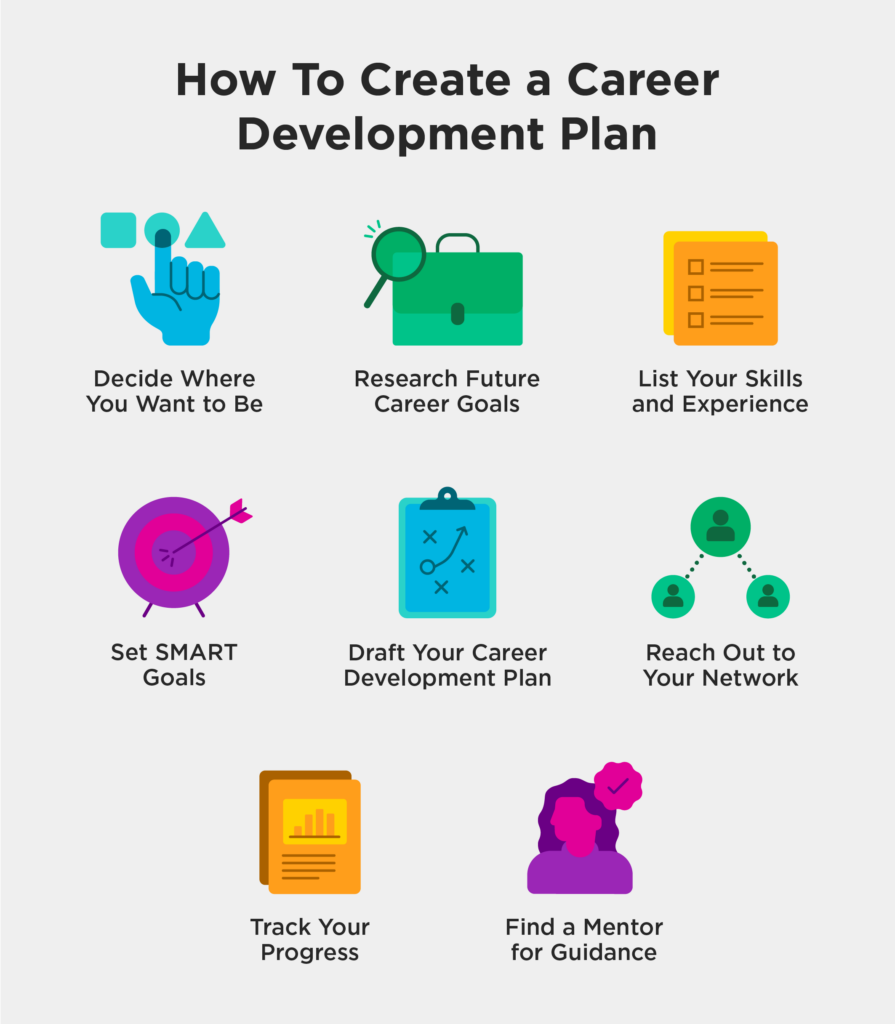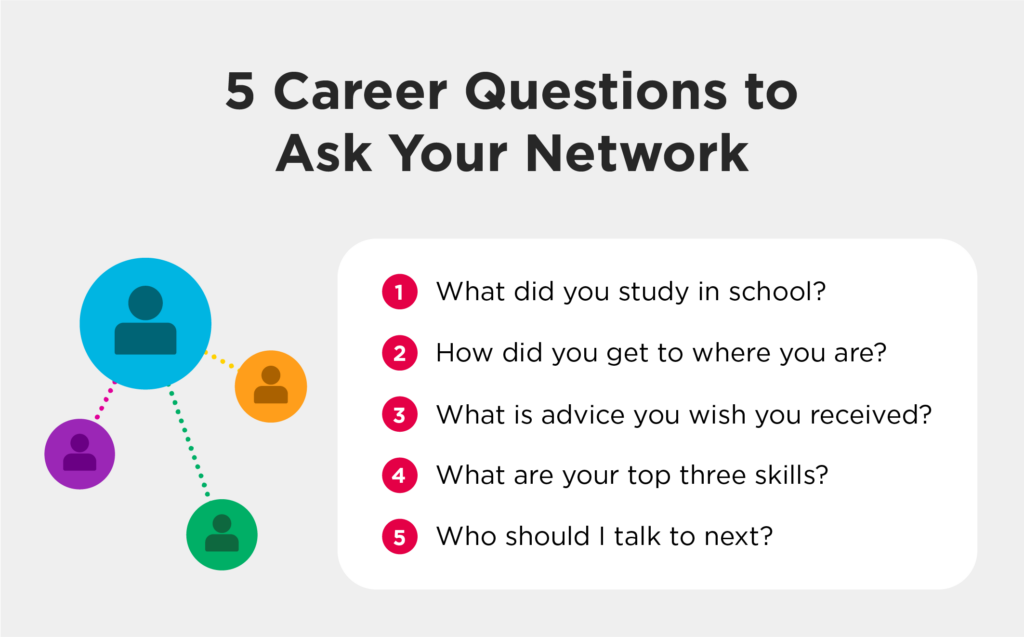How To Create a Career Development Plan in 8 Simple Steps

quick answer
A career development plan outlines your professional ambitions and provides a map to get you there. Follow eight simple steps to create yours today!
In This Article
On the hunt for a job? Looking for a promotion? You’re not alone! 87% of millennials think career development opportunities are important. The only question is, “How do you get there?”
A career development plan outlines your career ambitions and how you plan to achieve them. It highlights where your career is now and where you want it to be in the future. It also includes strategies and actions you’ll take to reach your goals.
It’s like driving a car — getting lost without a map or directions is easy. That’s why having a plan that suits your career journey is essential. Follow these steps to create your career development plan.
The first step in creating your career development plan is identifying the knowledge gaps between your current role and your ideal role. To do this, write down where you are now:
Next, write down your primary career goals. You can include short- and long-term goals that answer:
Comparing your present situation to your ideal future can help establish career goals. You may want to earn a Diploma or get specific experience. But first, we need to cover a few things in Step 2.
Now that you’ve written the start and end of your map, it’s time to fill in the details. You can start to figure out the career skills and experience you need. Answer the following questions:
Consider your greatest strengths, but don’t worry if you plan to change industries. Many skills are transferable between roles and careers. Once you’ve noted all your skills and experience, it’s time to research the skills and experience you are missing.
Now, it’s time to research your future career goals. If you are setting a few career goals, research each separately. Start with the goal that’s easiest to achieve, then move towards your most challenging goal.
For example, marketing career goals might be:
Next, research your career goals and list the required skills, education, and experience you need. Compare this to your current role. Write down any gaps in your skills, post-secondary education, or work experience.

Now it’s time to set your career goals. Whatever goals you have, it’s essential to make sure they’re SMART:
SMART goals are more achievable because they are specific and focused. For example, rather than writing, “I want to work with data,” instead try, “I want to get hired as a Data Analyst by January 2025.” By changing your language even slightly, you have given yourself a concrete timeline and a specific, realistic action.
Use your S.M.A.R.T. goals to structure your career development plan. Using the information you’ve outlined above, map out:
Now it’s time to action this information. Aside from creating a career development plan, there are a few other tools to help you succeed in your career. This includes documentation, mentorship, and your network connections.

With your plan in place, you can reach out to your network. Contact people you want to connect with and learn from. If it’s a new relationship, you can introduce yourself on LinkedIn. Always keep it professional and show people you value their time.
Your network can provide valuable insight and feedback. They can be people from the industry you want to work in or who share your career goals. Set up a coffee date or Zoom meeting to ask them questions like:
Your network can be a helpful resource in your career. Networking events are a great way to meet professionals and make valuable connections. Attend a networking event if your network is small and you want to meet new people.
Another excellent tool for career development is finding and forming a relationship with a mentor. A mentor will give you direction and guidance throughout your career journey.
Mentoring takes a lot of effort, so think about who you ask to take on this role. Ask yourself:
Try to meet with your mentor regularly and frequently on a schedule that works for both of you. You can discuss job prospects, resume building, and professional development. Show your gratitude by arriving early with plenty of ideas to discuss.
Always document your progress to see how far you have progressed. By tracking your milestones, you can celebrate wins, check off achievements, and make adjustments to your plan.
Look at your career development plan throughout your journey. You’ll likely need to make updates as your interests and priorities shift, and it’s fine to change your career based on what you learn.
Don’t expect to create a perfect strategy right away. Do your best to create a career development plan, use your network, and work with a mentor. You’ll be setting yourself up for incredible success in your career.
The five stages of career planning is a theory developed by Donald Super in the 1950s. Career planning is different from career development plans, which focus on achieving short- and long-term goals. Career planning outlines five theoretical stages of career development in your life.
The five stages of career planning include:
Every career development plan is unique, but they all share the same structure. Your plan should outline where you are now, where you want to be, and how to get there.
Below is an example of a career development plan from one of our Digital Marketing graduates.
Starting point:
Destination:
Route:
A career development plan is important because it can help you get from where you are to where you want to be. It provides a structured path for achieving your career goals. Your career development plan can also keep you organized, focused, and accountable.
At Robertson, we offer free, life-time career support. through our Workforce team. Our diverse team specializes in candidate coaching and industry demands. All our campuses have a dedicated Career Services team to assist you with everything from job interviews to resumes.
If you’d like to get started on your career journey, contact one of our career advisors from the Workforce team.
In This Article
Once you take the first step, one of our Student Admissions Advisors will get in touch to better understand your goals for the future.
Apply Now